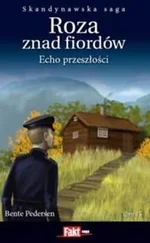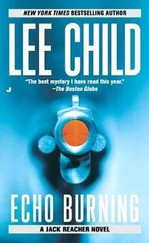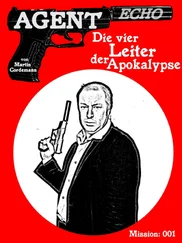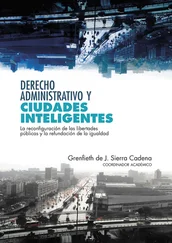She took the train to Dover and the ferry to Calais. As she approached the coast of France, the fine April weather England was enjoying ended as the ferry was enveloped in a grey and persistent rain, washing from an overcast sky. By the time she got to Calais itself, the rain was heavy and unremitting. She hired a car and studied her map. She had managed to contact the farmer whose family had owned for generations the land on which the barn still stood. He had not sounded overjoyed on the telephone about her proposed visit. But neither had he forbidden it. Suzanne spoke some French, but the farmer was content to communicate in rudimentary English.
‘Tuesday,’ he had said.
She tried to establish a time.
‘Tuesday,’ he repeated, sounding amused at this insistence on such precision. ‘I will be here. Where else would I go?’
She tried to describe herself.
‘I will know you,’ he said. ‘Do not worry, madame . This is not an English farm. You are not a candidate for my shotgun.’ He laughed. She thought the joke a poor one.
The French countryside was flat and bleak and rain-defeated. The drive across it was monotonous. In an effort to distract herself from wanting to smoke, she switched on the car radio and tried to tune it. It was Suzanne’s opinion that French pop music usually consisted of several competing tunes hammered out in parallel by lots and lots of fundamentally incompatible instruments. And the French language did not lend itself easily to pop lyrics. None of the words scanned in the convenient way English did. So she searched for a classical music station. But she stopped pushing the tuning button as soon as she heard something familiar and vaguely welcome to her ears that wasn’t French.
It was the Prefab Sprout ballad ‘When Love Breaks Down’ sung plaintively by the failed priest. What had Martin said his name was? She knew it because it was a track from one of the wistful, whimsical albums Martin liked to listen to on the expensive audio equipment in the flat, equipment which he had bought and about which he could be so precious. She’d get the singer’s name in a minute. Nothing stayed on the tip of her tongue for very long. It was one of her talents. She had an excellent memory for detail.
Just then, at that moment in her life, she felt her talents both taken for granted and somewhat abused. She had lost her staff job through a round of BBC cuts, which she felt had left all of the fat in her old department intact while removing most of the muscle. She had been offered the choice of a severance package or a freelance contract and had opted for the latter. But there was something subtly degrading, she felt, about her freelance status. Programme editors and producers treated her differently now that she no longer had the protection of the BBC as an employer. There was more rudeness. There was more pressure. There were shorter deadlines. And programme makers who found it an effort to fight their own sexism or inclination to bully stopped doing so in their encounters with her.
The Collins documentary series was a case in point. It was being billed as definitive and, over three forty-minute episodes, she was confident it would be. But the producer had wanted the Big Revelation. That was how he put it, in his memos to the department, in his capitals. And the Big Revelation he wanted was that Michael Collins was homosexual. His reasoning for this, laughable to Suzanne, was Collins’ notorious fondness for wrestling colleagues and friends and his vanity over his appearance. She still had not decided whether the theory was a bigger insult to Collins or to the gay movement. But she had failed to find a single shred of evidence, physical, anecdotal or otherwise, to support it. And that was being interpreted as her failure, because the producer had a gut feeling about this and knew he could not be wrong. No matter that she had come up with hard facts about Michael Collins that the series would air for the first time. The atmosphere in the edit suite was poisonous. Three weeks before the transmission date, the sense of disappointment was almost palpable. Suzanne had done a brilliant job, she felt, that was being judged as somewhere between superficial and inept. And, as a freelance, she could ill afford a reputation for ineptitude.
‘Paddy McAloon,’ she said out loud at the wheel, remembering the name of the priestly novice turned rock star, startling herself, because the song was still playing and that couldn’t be possible, could it? Unless there was a version of ‘When Love Breaks Down’ that played for ten minutes. That was unless, of course, the station was just playing the same song over and over.
She turned off the radio, glanced in the rear-view mirror and saw that there was nothing else on the road. She brought the car to a halt with two wheels on the grass on the roadside and lowered the window and then switched the engine off. The wipers stopped and the windscreen blurred and blinded with rain. She could hear rain patter on the roof and the grass outside the open car window. Essentially, it was a reassuring sound, rhythmic and familiar. But it did not offer reassurance now. She felt alone and vulnerable in a raw way, at odds with the smudged landscape and soft, rainy light. She would smoke a cigarette, she decided. It was almost noon and it would be her first of the day. She reached across to the passenger seat, where she had put her bag. It was a myth, of course, that tobacco calmed you and helped you to relax. But it was a myth she felt she very much needed just at that moment to believe in and take comfort from.
At just after one o’clock, she reached the track leading to the farm, two deep grooves in thin gravel and the black soil underneath it, determined by years and decades of heavy tractor wheels. There was a hedge to either side of the track, high and impenetrable. It was so gloomy that she was obliged to switch on her lights. And the track was longer than she thought, so long that she wondered if she had taken the wrong turning. But there was no going back once she had started, because the way was too narrow. And when the hedge petered out she recognised the pattern of low, old farm buildings beyond from the aerial photos she had studied on her computer screen.
The barn was not among them. That was a solitary building a half-mile across fields from the farmyard, the fields divided by a ditch lined by poplars. You reached the barn by following the ditch. You did it in a tractor or a four-wheel drive over the rough, rain-soaked earth. Or you walked there. You walked across the fields of northern France to your destination. From somewhere not far away, Suzanne could hear the persistent bark of what sounded like a large dog. The bark did not bother her. Farm dogs were territorial, but they were not generally vicious. A vicious dog on a farm took too heavy a toll on the livestock and she knew that the farmer, Pierre Duval, kept geese and chickens and bred lambs here.
She went and knocked on the door of the building that looked most like a dwelling. It was old and brick-built with a porch, and there was smoke raising a thin stain into the rainy sky from a chimney. But there was no response. She walked round the side of the building and peered into a window. The interior was dark, dank even, ancient enamel appliances yellowing in its shadows. It was a kitchen, but it seemed cold and abandoned.
None of the other buildings were occupied either. Perhaps the farmer was just doing what farmers did, out in his fields. Suzanne looked around the farmyard once more, trying to persuade herself that there was something picturesque in the buildings with their half-timbered walls, their rust-coloured brickwork and sagging roof tiles. But in the rain, among the puddles, the place looked squalid. Rustic charm was absent from it. There was a damp and elderly smell of cow shit. Birds flapped in a ragged flock towards the poplars lining the ditch that led to the barn. Suzanne looked at her watch and decided to follow them. She wanted to be well on the way back to Calais and the bright ferry terminal lights by the time darkness descended here.
Читать дальше












